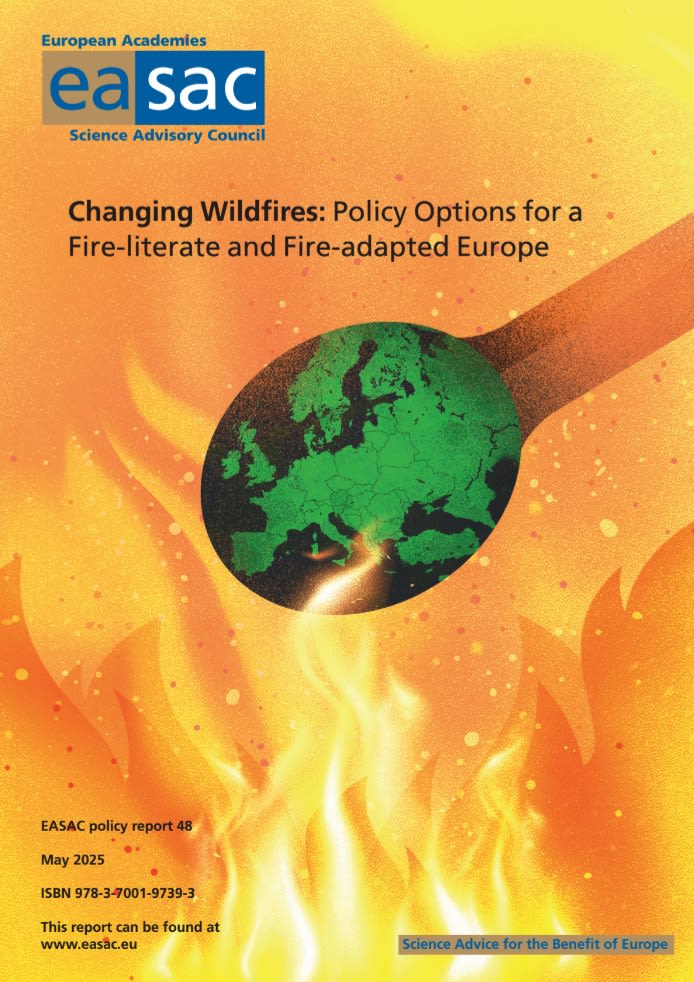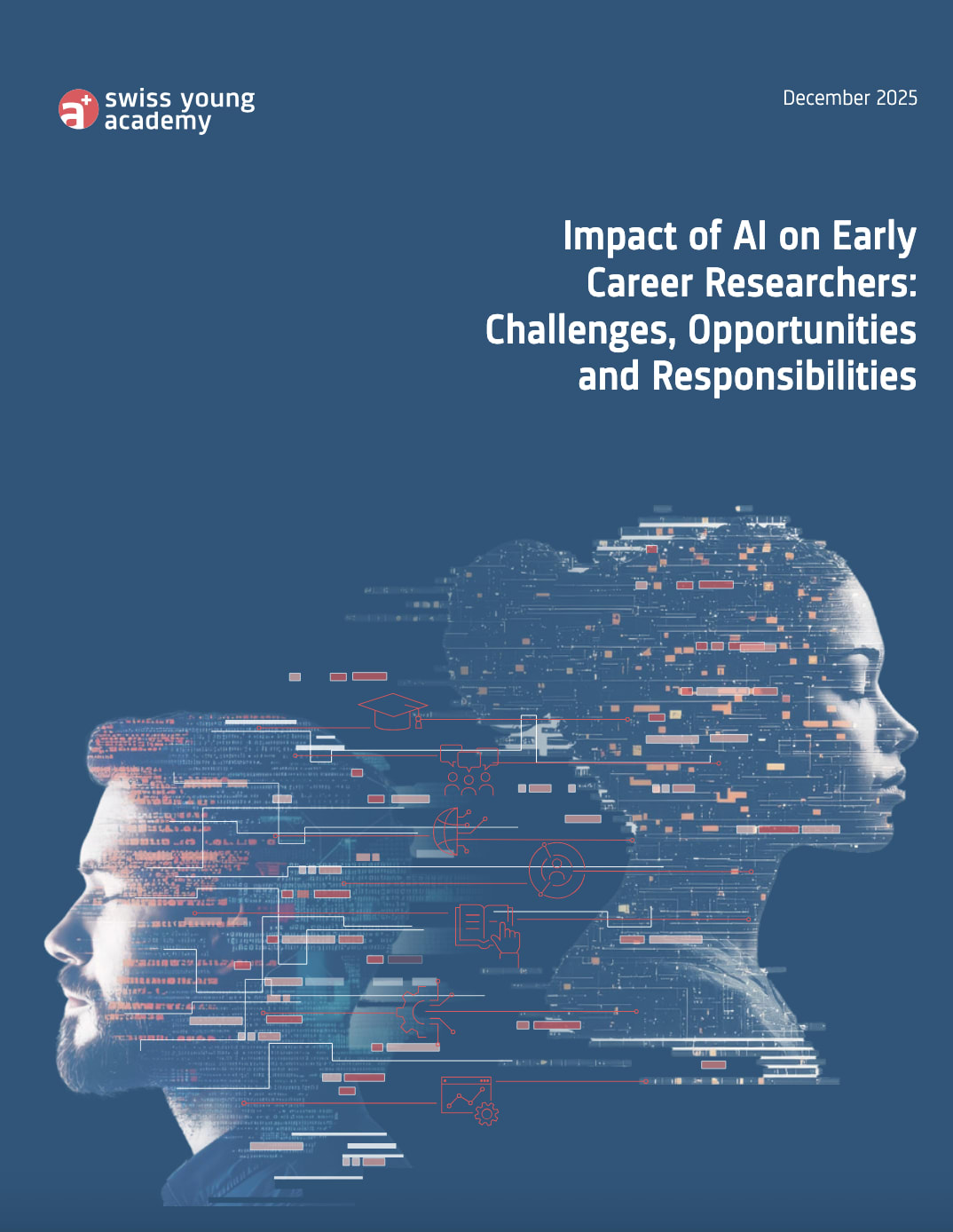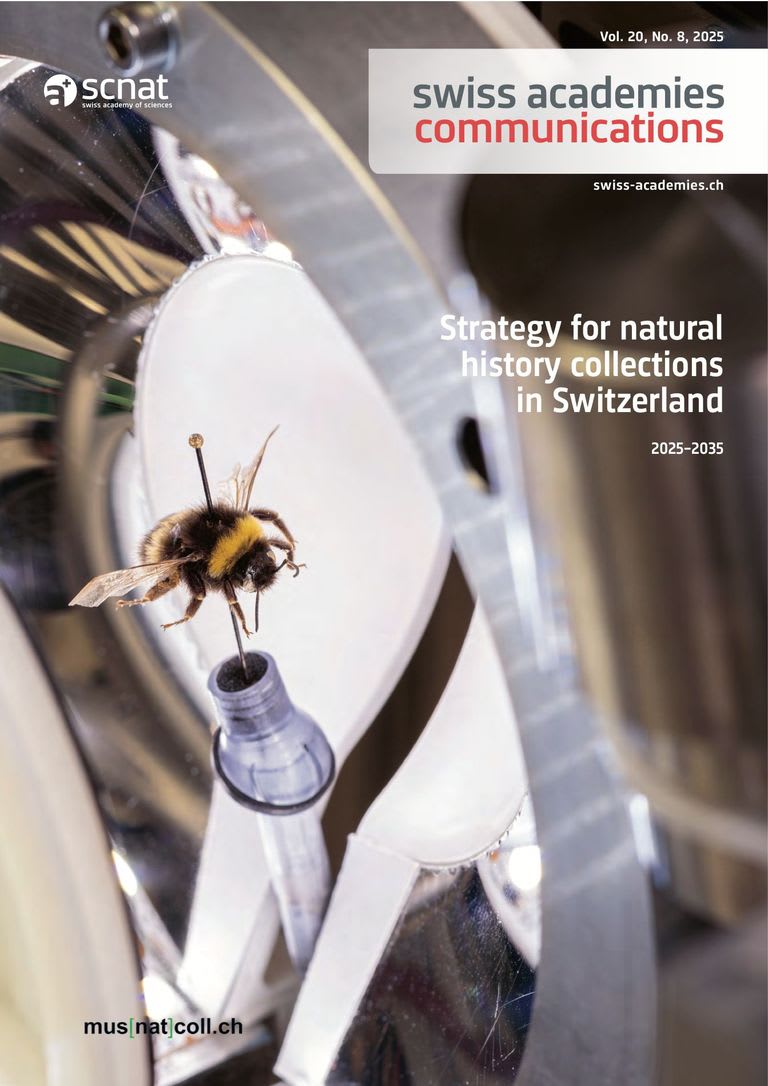European Academies Science Advisory Council EASAC
Changing wildfires: policy options for a fire-literate and fire-adapted Europe
There is an increased probability of extreme fires, due mainly to climate change (droughts and declining summer precipitation), rural depopulation, and land-use changes. To respond to this, a new European Academies report is calling for an urgent shift in wildfire policy – from reactive fire suppression to proactive, risk-based land management.
Already today, wildfires burn half a million hectares in the EU yearly on average, i.e. nearly twice the size of Luxembourg. While the Mediterranean remains the highest-risk region, the report warns that continental, alpine, and boreal regions must also prepare for a new era of fire. Instead of focussing on fire suppression and emergency response, the report advocates for an integrated EU framework for landscape fire-risk governance that prioritises prevention alongside these three elements: climate and land-use policies that focus on restoring carbon-rich peatlands and managing forests sustainably; integrate fire risk into biodiversity and tree-planting plans; and educate for a fire-resilient society.
The report under the auspices of the European Academies Science Advisory Council (EASAC) was drafted by scientists from across Europe. On behalf of the Swiss Academies of Arts and Sciences, Marco Conedera, forest engineer at the WSL Campus in Cadenazzo, contributed as a reviewer of a draft version.




